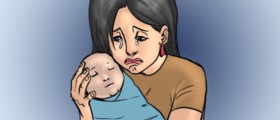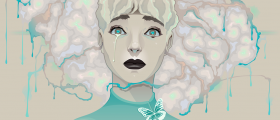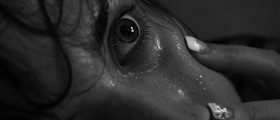
Usually, we connect the process of giving birth to a baby as a happy occurrence, and an event which changes people's lives for the better, bringing joy and enjoyment. However, we know that future mothers, during their pregnancy, undergo numerous different moods, including excitement, fear, anxiety and many others. Yet, in some cases, depression can occur, regardless of how illogical this might sound. This kind of depression, taking place after the birth of a child is called postpartum depression and it can be successfully treated, provided that the mother seeks help timely.
Treatment for Postpartum Depression
Postpartum depression signs can manifest in several different ways. Thus, the treatment itself may vary.
For example, a mother may suffer from baby blues, which is a temporary state of depression lasting from several days to a couple of weeks. During this time a mother needs all the help and support she can get. So, accept the helping hands from your family and friends or even other moms who are walking in your shoes. On the other hand, avoid consuming alcohol and, if the condition does not seem to go away, seek medical assistance.
A more serious state of affairs is called the postpartum depression and it needs a more direct approach, through therapy and counseling. Counseling involves talking with your therapist who can be a psychologist, psychiatrist or some other kind of a professional in the field of medicine. These sessions will help you feel better and control your feelings more.
Alternatively, your doctor may prescribe antidepressants. Yet, do not use these if you are breastfeeding since everything your body is exposed to enters the breast milk as well. Thus, consult with your doctor before taking these drugs.
Finally, hormone therapy can help you deal with postpartum depression, helping you get rid of the symptoms of this condition. Even though the effectiveness of estrogen replacement is still not officially determined, many women have benefited from this type of treatment.
Remember, when you start reacting positively to the treatment, you should stick to it. Quitting early can lead to a relapse.
The Worst Case Scenario
The most severe psychological condition which can affect new mothers is postpartum psychosis, needing immediate treatment, often through hospitalization. Once the mother is safe in the health facility, her condition is treated with antidepressants, mood stabilizers and antypsychotic medications. Alternatively, electroconvulsive therapy may be used too, using electric current to stimulate brainwave activity which can stop the depression or reduce its intensity. Since a mother undergoing such a therapy can have troubles breastfeeding, the medical staff and doctors will usually help her cope with this issue through counseling and sharing information.

















Your thoughts on this
Loading...